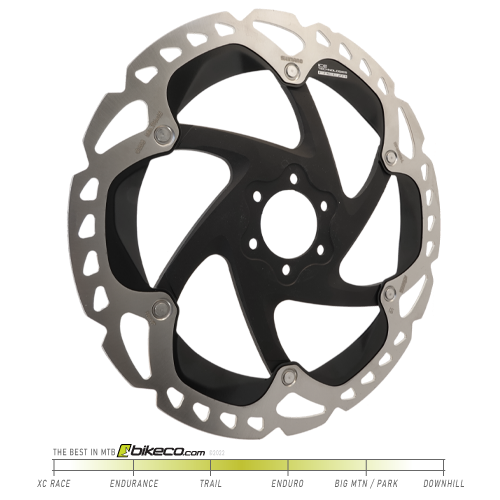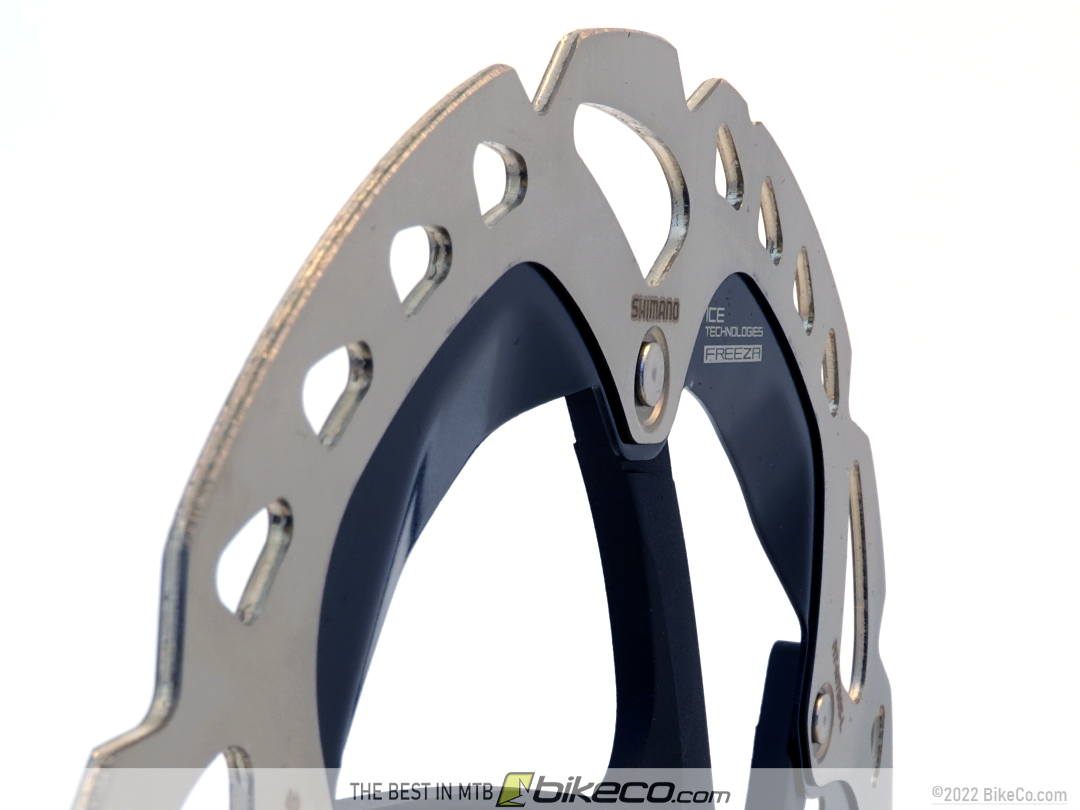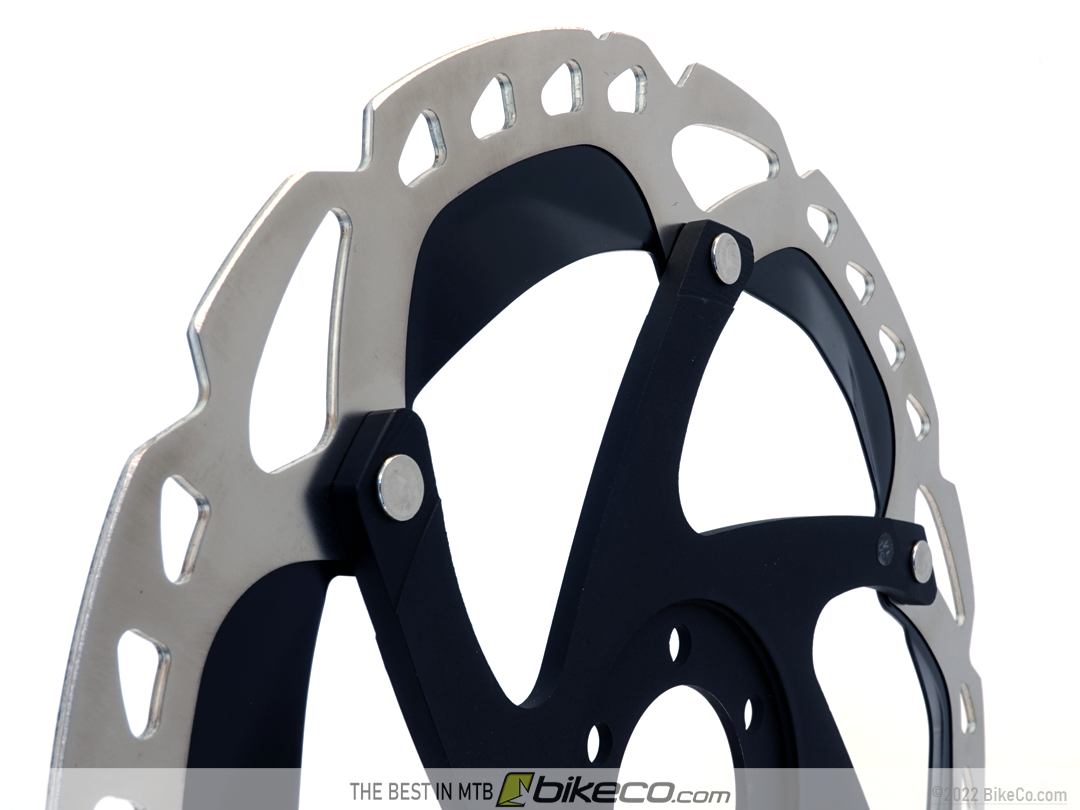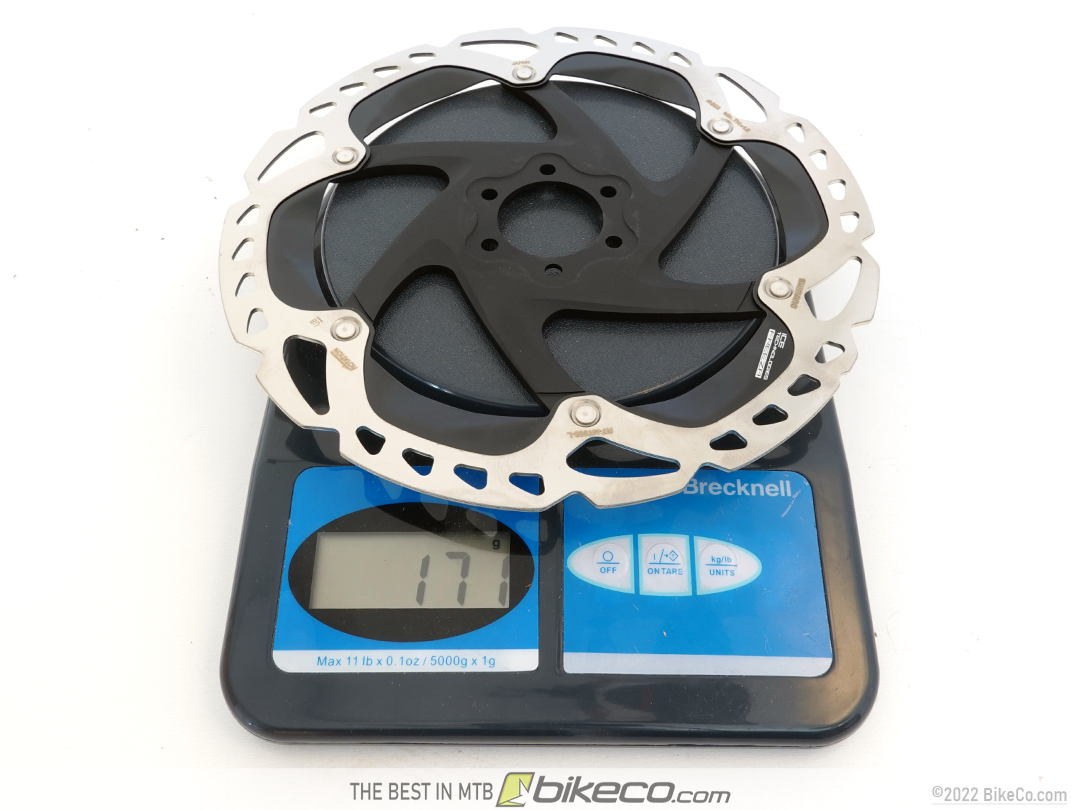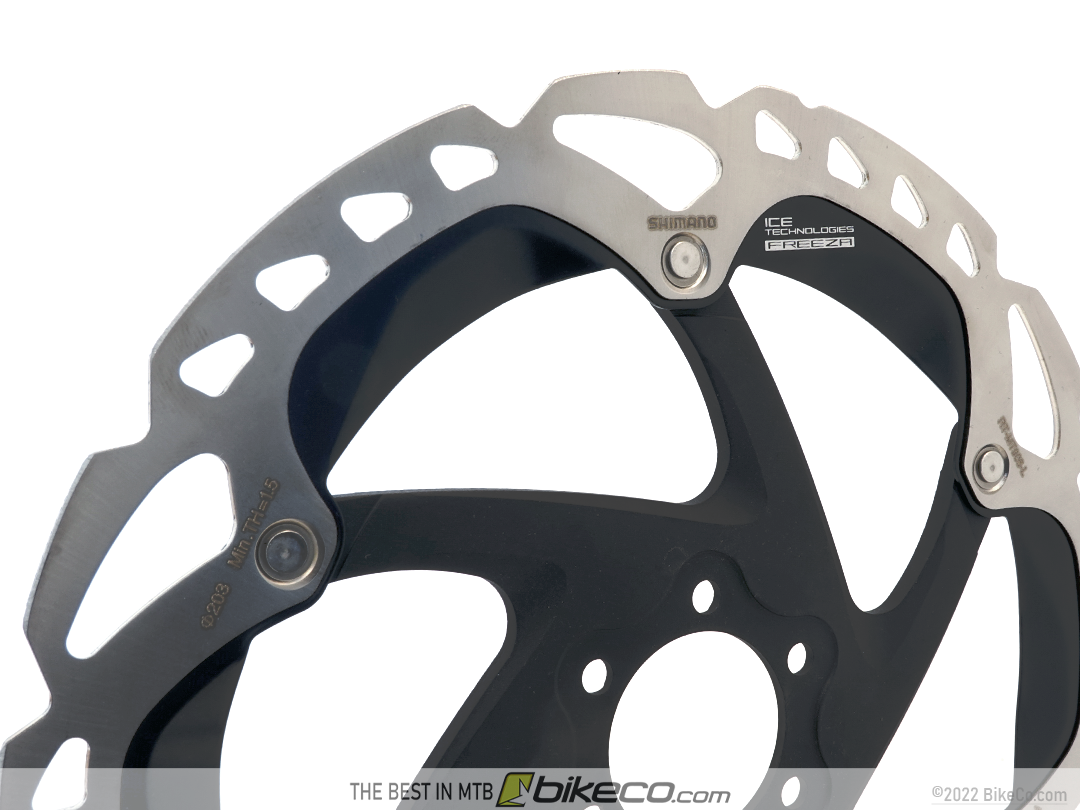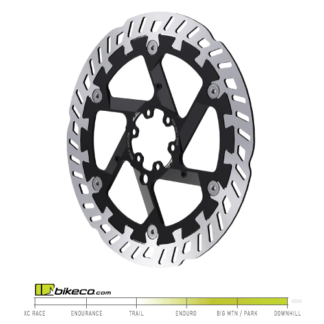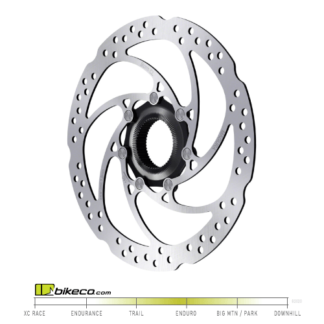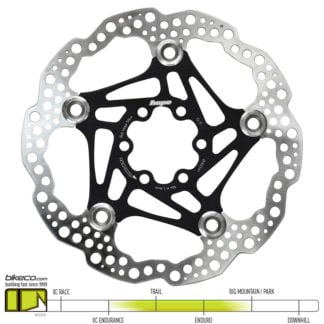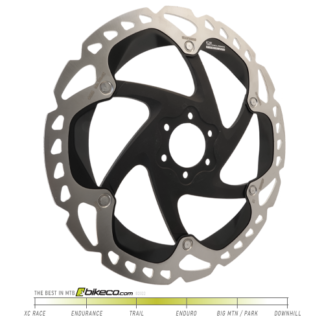Description
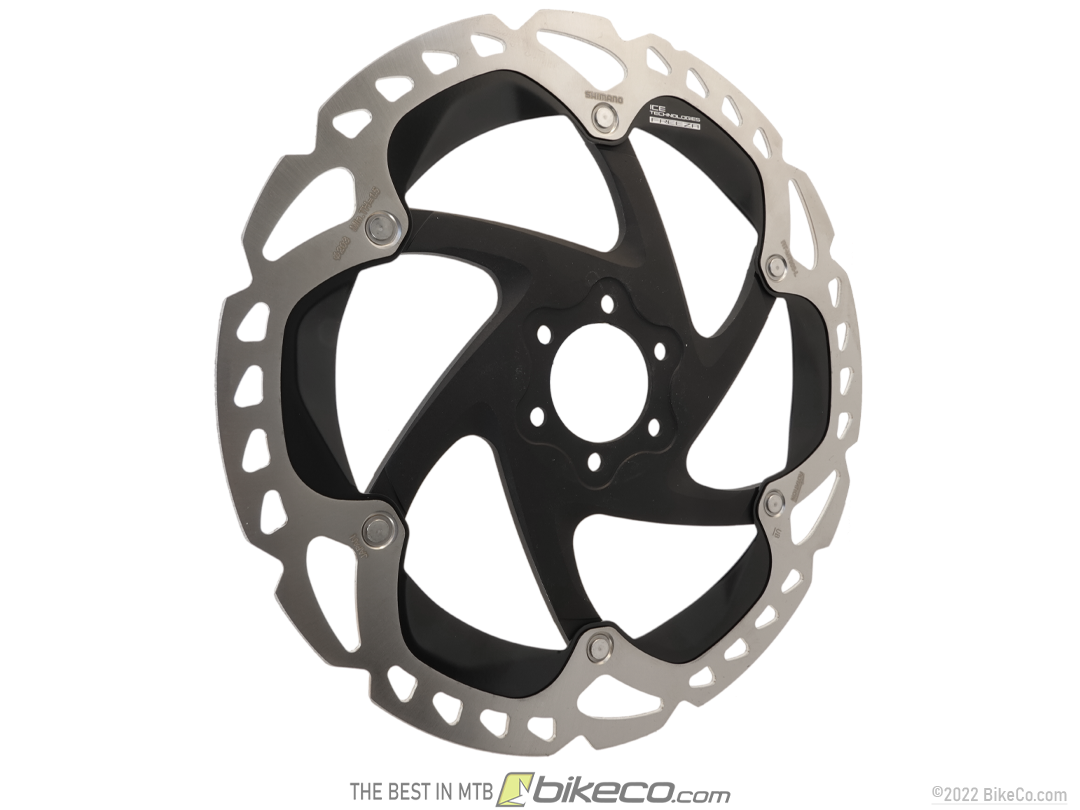
Shimano RT-MT905 203mm Rotor
Designed for maximum heat dissipation the Shimano RT-MT905 is the long awaited improvement to the Shimano ICE Technologies rotors featuring FREEZA designed for resin or metal pads.
203mm rotor weight: 171g
vendor part #: irtmt905L
EAN: 4550170904883
UPC: 192790904887
Finish your brake project choosing the best new brakes and adapters from BikeCo.com.
Learn more about Rotor Sizing, Wear & Replacement below.
MTB Rotor Sizing
Choosing the right size rotor is important to your riding. Too little rotor, and well, you’re not going to stop! Too much rotor can create a touchy feeling brake.
Things to consider when purchasing rotors are heat capacity and leverage.
Heat capacity is a function of both the model’s shape and construction as well as its diameter. Rotors with more cutouts will be lighter but sacrifice braking surface and material. This will increase heat saturation and decrease overall power. Some of this can be changed going to a larger diameter rotor. A larger diameter rotor will have more material (which slows heat saturation) as well as increased leverage on the wheel.
Increasing rotor size (leverage) gives your brakes added mechanical advantage for greater stopping power. If you go too large your brakes may start to feel “touchy”.
As four piston brakes continue to gain popularity riders are able to consider slightly smaller rotors to improve modulation without sacrificing total power.
Questions on what size is ideal? No problem. Chat with our team to dial in your brake performance for your riding style.
MTB Rotor Wear & Replacement
Rotor service life varies dependent on many reasons. Here are some of the more typical issues.
Minimum Rotor Thickness
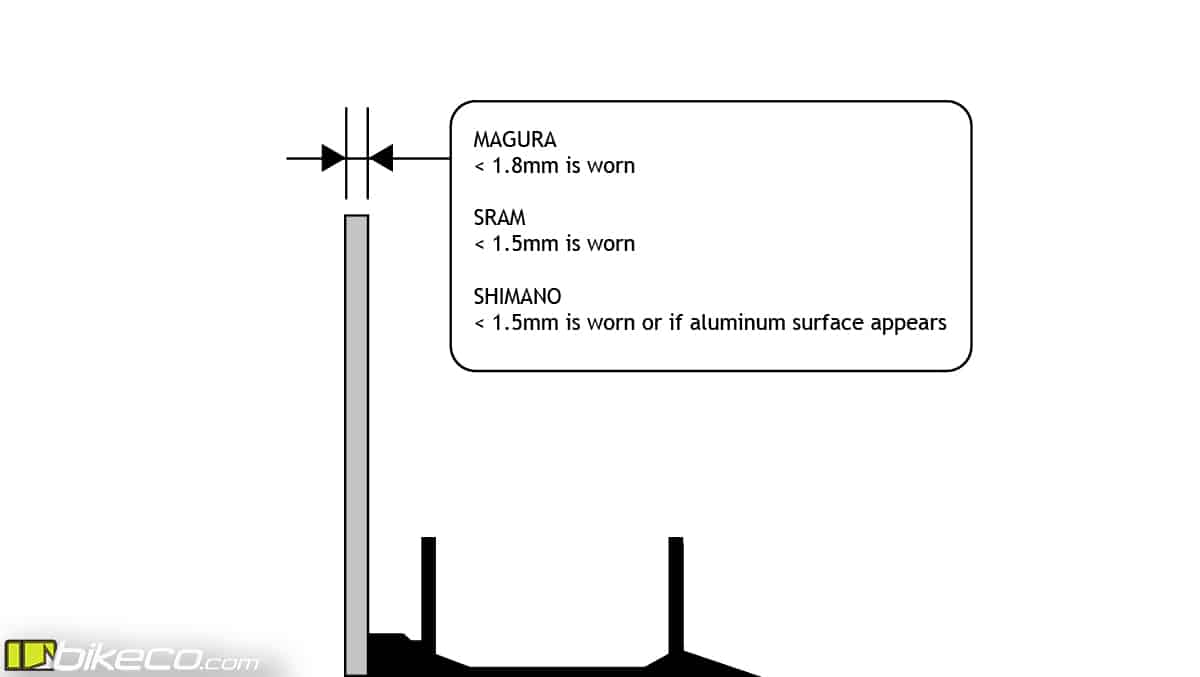
Magura rotors minimum thickness is 1.8mm. Less than 1.8mm is worn.
Because of the greater thickness on Magura rotors when new and worn it is suggested to pair Magura brakes with Magura rotors.
TRP 2.3mm rotors are considered worn at 1.9mm
TRP 1.8 mm rotors are considered worn at 1.55mm
SRAM & Shimano rotors minimum thickness is 1.5mm. Less than 1.5mm is worn.
Shimano Ice-Tech rotors should be replaced if any aluminum surface is visible.
When to replace rotors
To maximize your purchase it’s best to install new rotors with new brake pads. (Typically rotors will last 2-4 sets of brake pads.)
Rotors & pads wear in together and often will “take shape” to each other.
The image below illustrates some common wear issues for rotors and pads. When the rotor or pads have taken a shape out of parallel your brake performance is drastically diminished.
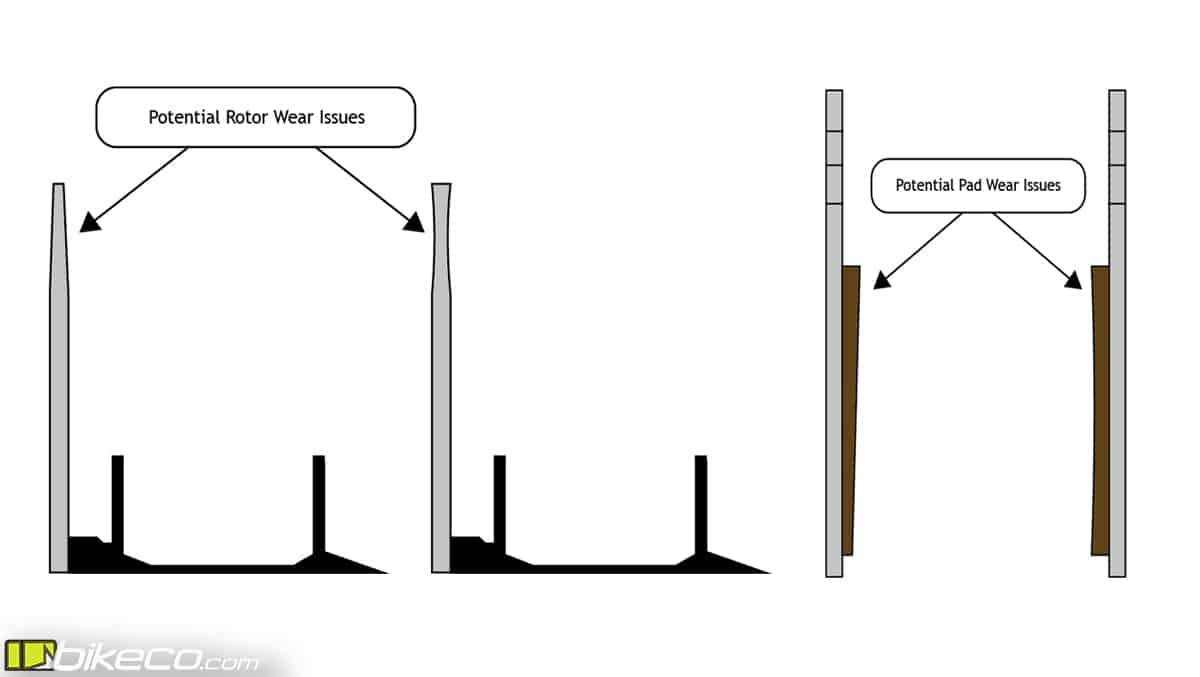
Reviewing the image above on the far left you see a rotor with chamfered edges. The rotor to the right has taken a concave shape (rotors can also take convex shapes but it’s less frequent).
Installing new brake pads on either of these rotors is going to be problematic.
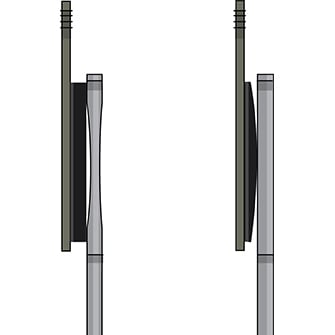
As you see above worn pads or rotors with new partners can create contact point issues.
When the contact area decreases it will superheat the remaining contact points. This can lead to permanent damage to pads, rotor, or both.
This is also the reason it can feel like you’re down power when you replace components individually. It’s best to replace rotors when you replace brake pads. Typically every 3-4 set of pads will require rotors. Depending on your riding conditions and service this may change.
MTB Brake Pad Wear Limits
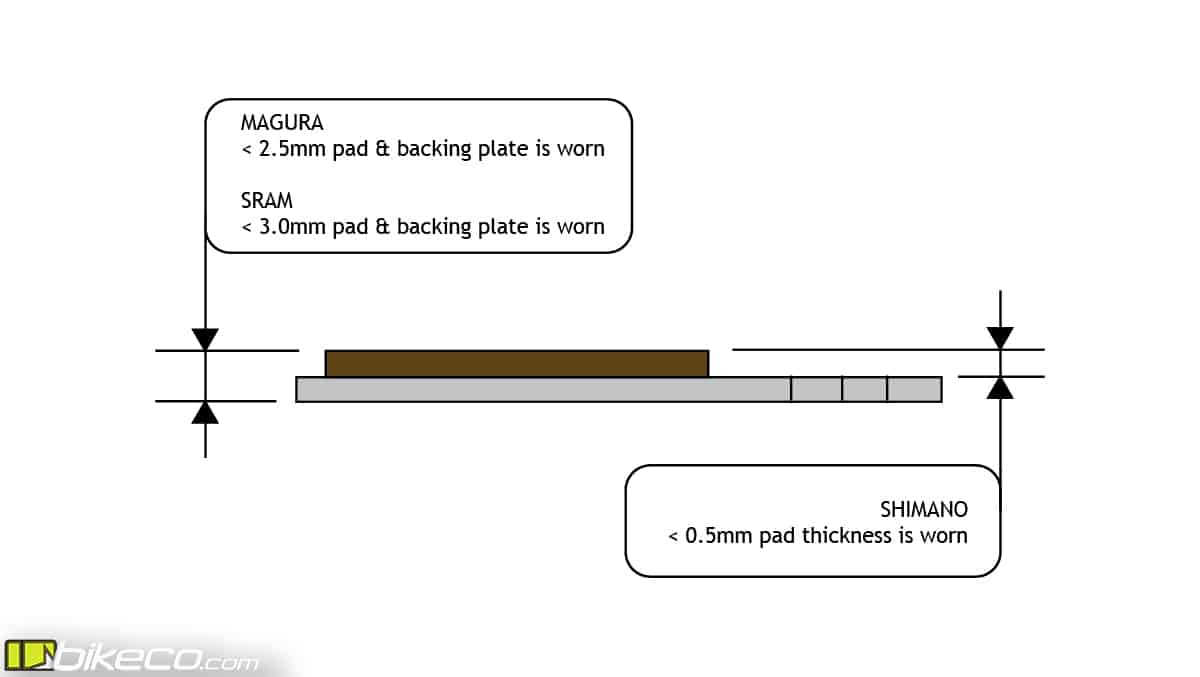
Magura pads measuring less than 2.5mm, pad & backing plate, need to be replaced.
SRAM pads measuring less than 3.0mm, pad & backing plate, need to be replaced.
Shimano pads should be replaced when the pad measures less than 0.5mm.
These measurements are maximum wear limits. Often performance, particularly heat capacity will degrade well prior to these limits. If you have a trip, race or plan on a really steep day that’s going to be hard on your brakes it is a good idea to refresh the pads well before the maximum wear limits.

